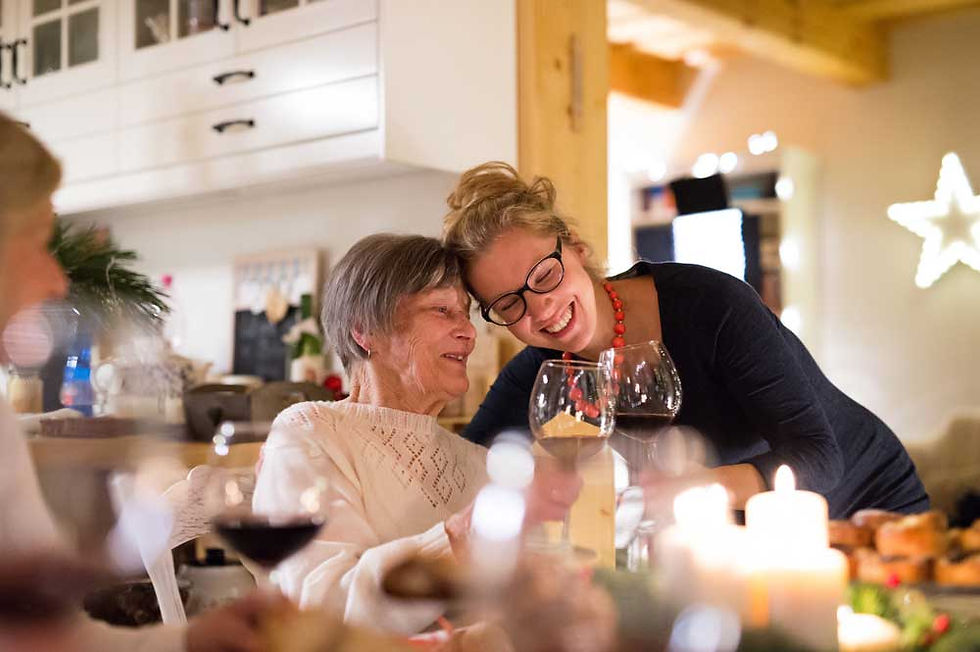The Stench of Ageism in 2020
- Katharine Esty

- Aug 23, 2020
- 4 min read
In March, before it became clear that the coronavirus can be lethal for any age group, Texas Lieutenant Governor Dan Patrick suggested that older people i.e. those thought most at risk, should sacrifice themselves to save the economy. “Let’s get back to work, let’s get back to living. Let’s be smart about it and those of us who are 70-plus, we’ll take care of ourselves. But don’t sacrifice the country, don’t do that, don’t ruin this great America,” he said on Fox News.

Wow. Ageism raised its ugly head. Covid-19 has surfaced fears that if resources are short, older people will be denied the care they need. Horror stories have circulated. Elderly sick people in Belgian nursing homes were refused care by hospitals even though beds were available, according to a Boston Globe article on August 9, 2020. People here in the US are fearful.
Who doesn’t matter?
Ageist attitudes are partly borne of ignorance. There’s been a revolution in old age in this country. Yet, most people have barely noticed just how many of us older people are leading pain-free, active, and productive lives. Most people don’t realize that 30 years have been added to life expectancy since 1900. Ageist attitudes flourish in many areas.
Ageism is found in attitudes and behaviors of individuals, in the practices and policies of institutions, and the norms of a culture. It is ageist when people are treated just as a group rather than seen as differing in their abilities and their individual characteristics. It is ageist when you lump people from 65 to 105 and make generalizations about them. Put together a group of people who are all exactly 92 or 84 or 75 and you will see a wild array of capabilities and fitness.

Many people still assume that almost all older individuals are declining, slow to learn, sick, and forgetful. They expect them to be not so competent, resistant to change, and over the hill. They dread the idea that someday they will be old themselves and they make frantic efforts to slow down their aging process. They may treat older people with pity and in patronizing and dismissive ways. They may treat them like children. These attitudes are not only mistaken and hurtful to the older person, but they can be lethal to your well being. Research has shown that having a positive attitude about aging increases your longevity by more than seven years.
Why not be productive your entire life?
Many Institutions have ageism baked right into their practices and policies. When the plum jobs, more resources, and most exciting opportunities go the younger people – it is ageism. There are still organizations with mandatory retirement policies although these policies are far less frequent than in yesteryear. But what is still happening is that many organizations try to buy out higher-paid employees in their fifties and early sixties. In turn, some of these people who accept these packages find that it not so easy to get hired at another place. That is because organizations seek younger people who can be paid lower wages and salaries and perhaps because they harbor ageist attitudes. Many of us elders would prefer to work. I, for one, have enjoyed working for twenty-one years since I turned 65.

Most buildings were designed with little thought about the needs of older people. It has been a scramble to somehow make them accessible as required by laws. But many houses and many public buildings still have entrances with many steps and no rails. Think about the Metropolitan Museum of Art in NYC. Toilets are almost without exception too low for many older people. Even in my retirement community, many of the chairs and sofas are impossible for many residents to use because they can’t get out of them. This needs to change.
Our cultural norms are ageist too. Norms are taken for granted—they’re the reflexive, traditional and customary ways we behave. It is customary for older folks to step aside from their leadership roles in the community. This is the right path for many, but not all older people. It is customary for the older generation to be on the sidelines. When I interviewed people in their eighties for my book, a number said they often felt invisible at social occasions and meetings. Surveys for cities and towns done for the Age-Friendly process have heard over and over that some older people feel they have little voice, no power, in community affairs.
Elder stay-at-home orders
COVID-19 is going to be around for some time. I fear that government leaders will instruct those over 65 to stay in place in their homes even when others will be back welcomed back in the community. I will protest.
But for right now, I am focused on getting out my vision of a world where none of us dread getting old. Where we older folk feel proud of our years. Where the beauty in fully evolved older persons is recognized and treasured. I envision a world where older people can assume we will not be pushed off center stage and that our voices will still be heard. Where our wisdom is valued and we are seen to be useful community members, not burdens. It is time to end ageism.
Readers: What kind of experiences have you had with ageism? What kind of ageist comments have you heard? I want to hear about these and I want to write more about good ways to respond to them.
Image left to right by © Mediteraneo, © Rawpixel.com, © jrivalta from AdobeStock












Comments